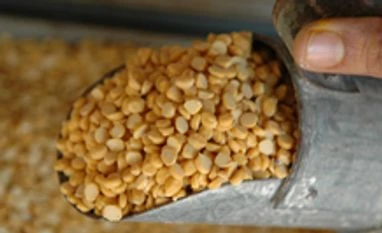Pulses price might rise again owing to the lack of focus on increasing production from local sources amid rising demand. According to a recent study by Kotak Institutional Equities, only 2.69 million hectares (12 per cent) of the total sowing area of 22.26 million hectares are under irrigation. Area under irrigation is crucial because pulses’ output is certain such areas irrespective of climatic condition. This leaves 88 per cent of the area dependent on rainfalls.
In October, prices had shot up sharply alleged due to cartelisation by traders. Tur prices had hit Rs 200 a kg in retail in major cities.
Globally, prices of pulses spike every few years. The prices rise when either demand rises or supply fails to keep pace with demand. In India, both the factors have played out. Demand for pulses has been increasing as the per-capita incomes rise and people improve their dietary pattern. Supply has remained constrained at 17-19 million tonnes annually over the past few years as yields stagnate and area under sowing remains stable.
This is one reason why India faces uncertain production even as the demand rises, said the report. The stickiness of India’s inflation is partly blamed on the supply-side constraints. Production of pulses requires investment in reaching water to farms.
In October, prices had shot up sharply alleged due to cartelisation by traders. Tur prices had hit Rs 200 a kg in retail in major cities.
Globally, prices of pulses spike every few years. The prices rise when either demand rises or supply fails to keep pace with demand. In India, both the factors have played out. Demand for pulses has been increasing as the per-capita incomes rise and people improve their dietary pattern. Supply has remained constrained at 17-19 million tonnes annually over the past few years as yields stagnate and area under sowing remains stable.
More From This Section
Tur remains the worst-hit among all pulses with only six per cent of area under irrigation. Most pulses varieties grown in India are afflicted by the problem of lack of irrigation. The average size of pulse farms in India is one hectare compared to 178 hectares in Canada. Indian yields at 700 kg a hectare are less than half of Canadian yields.
This is one reason why India faces uncertain production even as the demand rises, said the report. The stickiness of India’s inflation is partly blamed on the supply-side constraints. Production of pulses requires investment in reaching water to farms.
)